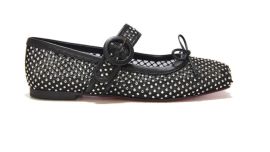The Foreign Ministry has hailed US President Donald Trump’s decision to grant Argentina an exemption from tariffs on aluminium and steel, saying it reflects “the strategic link and the excellent working relationship that has been forged with the US government.”
Under the agreement, Argentina will have a quota of 180,000 metric tonnes for both metals which are exempt from tariffs.
Production Minister Francisco Cabrera confirmed the news on Tuesday, following a statement from Washington.
“After intense negotiations we reached an agreement with the government of the United States allowing Argentine aluminium and steel exports to be exempt from tariffs,” Cabrera said in a press release.
The White House said that US President Donald Trump and his administration had decided to grant permanent exemptions for Argentina, Australia, Brazil and South Korea. However, it said Trump was extending the exemptions from punishing metals tariffs for Canada, Mexico and the EU for a further 30 days.
The EU expressed disappointment, saying the decision would “prolong uncertainty,” and called for a permanent exemption.
Back in March, the Trump administration slapped tariffs of 25 percent on steel imports and 10 percent on aluminium, sparking heavy lobbying from the affected nations, including Argentina.
In quotes provided for a recent New York Times article, Trade Secretary Miguel Braun – who was sent by Macri to Washington to lobby for an exemption – said the relationship between Presidents Macri and Trump was an important factor in the final decision.
“In the conversations that we have on the issue, the positive relationships between our governments — and our presidents — certainly comes up,” Braun told the US newspaper.
The United States is the main destination for Argentine steel and aluminium exports, with exports worth around US$700 million dollars, according to the Foreign Ministry. In total, US imports of Argentine steel and aluminum represent only 0.6 percent of the total steel the country imports and 2.3 percent of the aluminum the US brings in.
The Argentine Steel Chamber (CAA) celebrated the decision, calling it “good news for the national steel industry, but also for the entire country.”
STRATEGIC WEIGHT
Trump’s decision to temporarily shield the European Union from the tariffs for another 30 days is a sign of the economic bloc’s importance as Washington enters thorny trade talks with Beijing, analysts believe. The move came the day before a US delegation was due to go to China to try to head off a trade war over Beijing’s violation of intellectual property rights.
Monica de Bolle, senior fellow at the Peterson Institute for International Economics, said Trump could not go it alone in confronting the country’s policies on technology “and the EU knows that.”
Washington has accused China of the “theft” of US technology, such as forced technology transfer and Trump announced US$50 billion in tariffs on Chinese goods in retaliation to try to pressure them to make changes.
Trump has said unfair trade practices drove the US goods deficit with the giant Asian economy to a record $375 billion last year.
China also was hit with the US tariffs of 25 percent on steel and 10 percent on aluminum but it exports comparatively little of the metals to the US market.
“The importance of the EU for the US goes well beyond trade or anything related to steel or aluminum,” said de Bolle, adding that Brussels had undeniable strategic and diplomatic weight that Washington could not ignore.
The EU also objects against China’s policies on intellectual property, but would be unlikely to back the US in its fight if it had its own trade dispute underway.
Edward Alden, a trade expert at the Council on Foreign Relations, said Washington was hoping not to upset the apple cart in Brussels just as its heavy-hitters landed in Beijing.
“While the big US team going to China, the Trump administration simply does not want to open up another front with the Europeans and decided to wait,” he said.























Comments